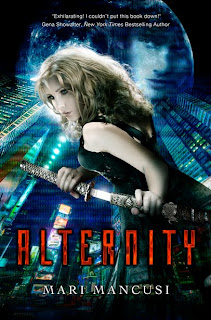STATUS: This morning I thought I had a mild day in front of me. After the third fire before 10 a.m., I gave up that notion.
What’s playing on the XM or iPod right now? REMINISCING by Little River Band
So yesterday’s announcement is not the be all end all of this topic. I’m happy to chat some more about our new Digital Platform.
As I said yesterday, we developed our model in conversation with our clients. In fact, their input modeled it. I went to them and said, “If an agent was going to offer a supported environment for self publishing, what would make sense to you? What would be of concern? What would make it worth an agent’s commission?”
And they told me. They also were gracious enough to review various model outlines and the DLP agreement that any author interested in using the DLP would need to click “I Agree” to use it.
And their help was absolutely invaluable and I feel quite comfortable that what we’ve created is the right approach–that we have not created something that will be a conflict of interest in representing clients and is a very ethical way for an agent to provide yet another facet of services to our authors.
My client Courtney Milan was gracious enough to post a blog entry on the topic today if you’d like some insight from an author who is currently self pubbing happily and successfully and not through our DLP–which by the way, bothers me not at all. I support her choice. Another client plans to do a guest entry on why she is using the full-service option and why she has been over-the-moon to do so.
Just wait until you see her totally kick-a** cover–something I don’t think she would have gotten on her own. It’s stunning.
I imagine that if a writer believes that all an agent does is sell books to publishers, there might be questioning on why an author would bother using an agency’s DLP. After all, a writer can certainly write the book, convert the efiles (or pay someone to), and put the titles up on Amazon, BN, Smashwords, Apple, what have you.
But you see, my authors know I do so much more than that.
And as an agent, I have relationships with folks that most writers can’t even imagine. Will all of them be valuable? No. Have some already proven to be? Yep.
But let’s talk DLP stuff.
1) First a correction. In yesterday’s entry, I realized that I typed “term of license.” Oi! In our DLP agreement, it’s a “term of liaison.” Not quite the same thing in a rather big way. So my apologies. For our full-service option, NLA foots all the upfront costs–which is why we specify a 2 year term of liaison. Could you imagine plunking down the money and have the author pull it a month later and we are simply out of luck? Quite frankly, my authors are awesome and I can’t imagine any one of them doing that but as an agent, I still have to be smart about it.
In short, for full-service, it needs to be on our DLP for 2 years and that’s it. After that, authors are free to do as they please and we will even give them their files. After all, they own it. They didn’t grant rights to us.
If we haven’t recouped in 2 and they take it, are we screwed? Yep. But I’m betting that it’s so worthwhile, that they are happy to keep it there. Nothing is in perpetuity. Why would an author do that?
For distribution only venue, an author can come and go as they please. All we are providing is access to venues they can’t access. It’s our standard 15% commission. For anyone who doesn’t think that’s worth it, they obviously have not wrestled with google’s very unfriendly platform. Not to mention, we have venues that authors individually do not have access to. And let me tell you, having been there and done that, it’s probably not worth the headache for an author. Amazon and BN have designed it to be easy. Not all venues have done the same.
2) Now remember, the author is in full control of their work. In the full-service option, they have access to a rather in-depth list of resources for cover artists, copyeditors, proofreaders, developmental editors, publicists, web designers, etc. They choose; we pay. The only exception is the developmental editor. The only reason for that is because we have no say in the revision process and I could see an author running up a rather big tab on the agency’s dime by doing endless revisions for months on end. Probably unlikely but once again, we need to be smart about things.
Now, keep in mind, as many of my clients can attest to (for good or for bad *grin*), I’m an agent who edits–probably to the level of a developmental editor.
3) On our full service, we rep the subrights–foreign, film, etc.
One commenter asked “It seems an inherent conflict–the agent has a vested interest in the author NOT publishing with a publishing house else, but instead self-publishing using services NLA benefits from financially.”
Actually no. The author client is self-publishing so it’s not even a choice for me. I have no say on whether they are on the DLP or not. If they are looking for an agent, my assumption is it’s because they want a finger in all pies and are looking for a print/ebook deal with a “traditional” publisher (for lack of a better word). I’m not taking on writers who just want to use our DLP.
That is not the point of offering this service.
Hopefully I’ve answered all questions. It’s after 8 p.m. and all I really want to do is go home and eat dinner.








